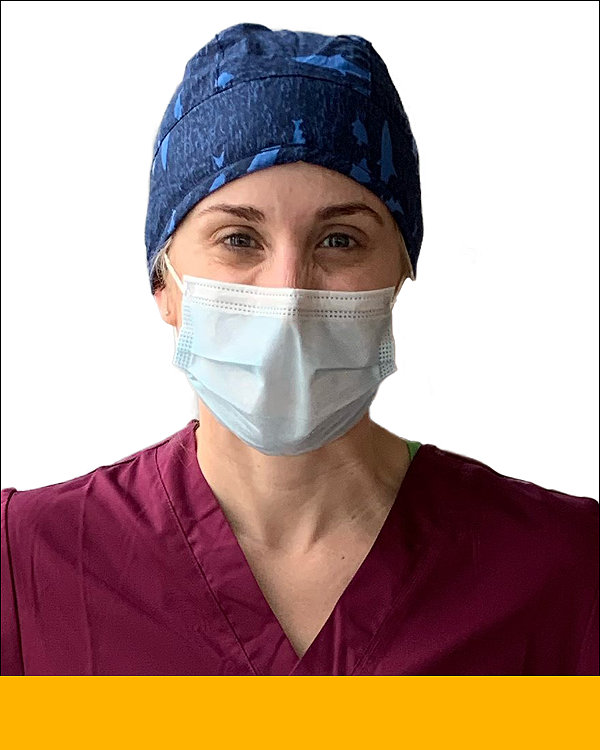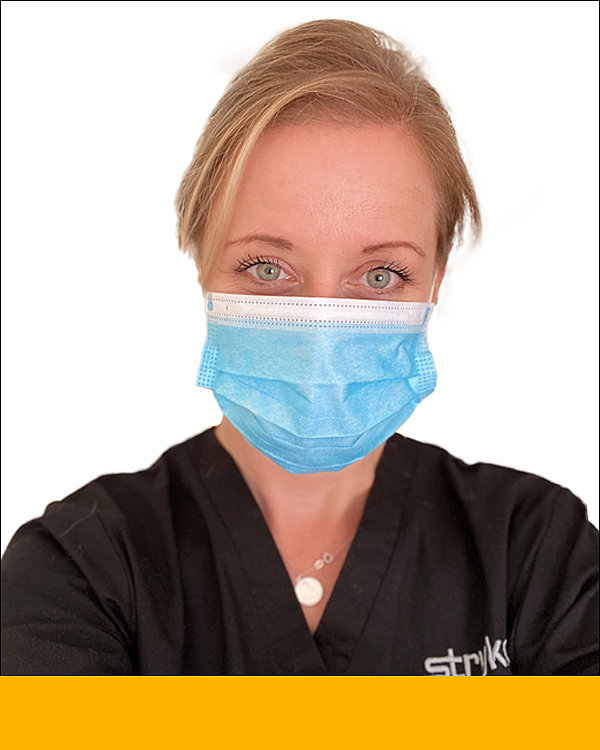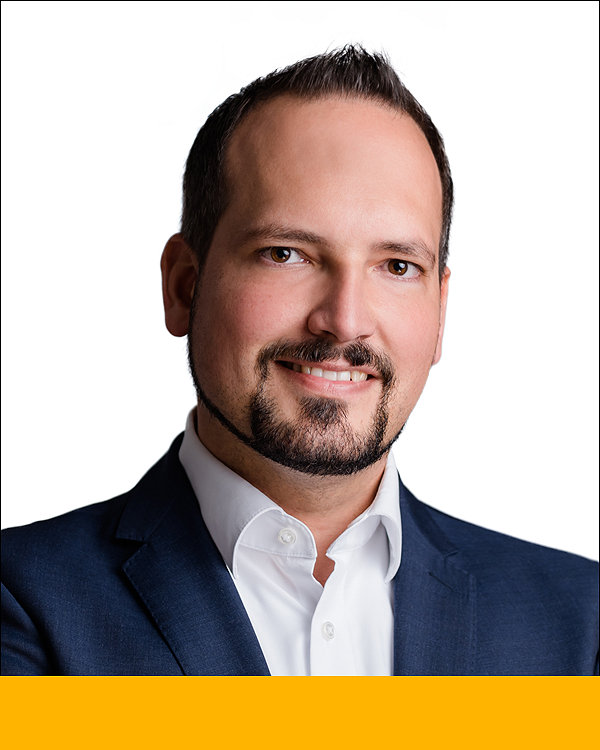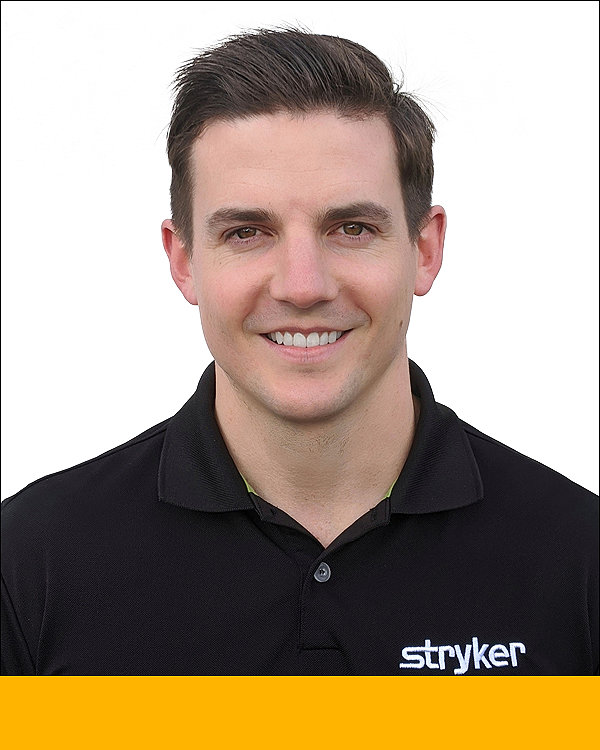We use cookies to customise content for your viewing and for analytics. If you continue to browse this website, we will assume that you are happy to receive all our cookies. For further information, please read our cookie policy.
03-Sep-2020
From behind-the-scenes to the front line
______________________________________________________________________________________________________________
It began with the calls for help. New medical graduates and retired healthcare workers were brought in to assist with surging patient counts as hospitals reached capacity. The need for physicians, paramedics, techs, nurses and more has consistently been echoed in pandemic hot spots since March. In addition, local governments have been asking for contact tracers to help them track, understand and contain the spread of COVID-19. Staffing has been only one part of the challenges facing healthcare during this new and uncertain time. There are also dire calls for personal protective equipment, ventilators and other technology to improve safety and build capacity for those on the front lines of the pandemic.
In response, medical technology companies have worked to solve equipment and PPE needs. Driven by the needs of our customers, Stryker teams innovated quickly, producing emergency relief beds, face shields and more.
And while our mission remains focused on our customers, for some Stryker employees, it was the call for trained healthcare professionals that drew them in. Each felt a responsibility to join or rejoin the front lines, to offer not just their skills but themselves as well.
Morgan Goldsmith enters the "Bubble"
_______________________________________________________________________________________________________________
In April 2020, when the pandemic was spreading across New York City, Morgan Goldsmith couldn’t stand to sit back and watch. She felt compelled to help.
Morgan and her mentor – Rebecca Paalman, Director of Strategic Development – worked closely with Stryker leadership to develop a policy allowing employees who retain their clinical licences to serve in the field with company support. Under US policy, employees who are licensed healthcare professionals can receive paid leave and maintain their medical benefits if they choose to serve during a crisis. The policy was quickly approved – and Morgan left for New York.
Morgan volunteered at Ryan Larkin Field Hospital (RLFH) constructed underneath the bubbled dome of the Columbia University sports complex, as an extension of New York-Presbyterian. While there, she and a special operations medic led a team of 12 volunteer healthcare workers from across the US. “The need for clinicians was greater than ever before”, Morgan said. "As a nurse, I felt I had a moral responsibility to take care of fellow clinicians and their patients".
Morgan served in various capacities at RLFH, in a space called the “Bubble”. There, clinicians treated patients diagnosed with the virus. She spent a total of five weeks in New York and an additional two weeks in quarantine. While away, Morgan's Stryker family regularly checked in on her, sending her encouraging text messages and phone calls. They also supported her husband and two young sons, who were cheering her on from their home in Cincinnati, Ohio. "My team was amazing", she said. "They're one of the reasons why I love working at Stryker".

“The need for clinicians was greater than ever before. As a nurse, I felt I had a moral responsibility to take care of fellow clinicians and their patients”.
– Morgan Goldsmith
Rebecca Gates makes the call
_______________________________________________________________________________________________________________
In June 2020, Rebecca underwent training to become a contact tracer at Qatar’s Primary Health Care Centre (PHCC). The next day, she was on the phones, gathering as much data as possible to prevent and reduce further spread of the virus. After each call, the information she gathered was collated into a database for the Ministry of Public Health to use, so that the local field team could test in a systematic way.
Day after day, call after call, Rebecca learned more about the virus and its epidemiology. The initiative that she's part of is contributing valuable data to the Ministry of Public Health, which they hope will get them closer to managing the virus. "On my first day of volunteering in June, there were 1467 recorded cases", she says. "The number continued to rise each day, to as high as 1891. However, we're hopeful that Qatar has started to turn a corner".
The front line in the fight against COVID-19 looks a little different everywhere. For some, it's in a hospital. But critical work is also being done from other places, like from a phone. "I feel very privileged to have been part of the PHCC case investigators team", Rebecca said. "At times, it was harrowing. But it felt good to have a sense of purpose during the pandemic locally here in Qatar".

“It felt good to have a sense of purpose during the pandemic”.
– Rebecca Gates
Florian Schanderl saves a life
_______________________________________________________________________________________________________________
In late April 2020, Florian – a sales representative for our Medical division in the Bavaria region of Germany – was on duty as a voluntary first responder at the Unterschleißheim Fire Department, located in northern Munich. The fire department receives around 1000 calls every year. Six hundred are medical calls and Florian was there the moment one was received.
The call came at 4:26 pm regarding a young girl with a supposed seizure. "At 4:29 pm, I arrived at the scene, where the brother was waiting in the street", Florian said. "I went to the third floor, where the mother was performing chest compressions and ventilations on her daughter in the living room". The 12-year-old child was turning blue and gasping for air. Florian quickly prepared the AED – a LIFEPAK CR2 that the department's car was equipped with. She initially had a ventricular fibrillation which was terminated shortly with the first two shocks, then finally with a third shock of 360 Joules. After these shocks and more CPR, the girl was breathing regularly and had a pulse. And a few hours later, the patient was neurologically fully recovered.
These moments are a strong reminder of the responsibility and honour that comes with working in healthcare. "This story is the best example of why we all are doing our job", Florian said. "We as bystanders, as first responders, as paramedics, as physicians and as employees of Stryker, provide solutions that can save lives".

“We as bystanders, as first responders, as paramedics, as physicians and as employees of Stryker, provide solutions that can save lives”.
– Florian Schanderl
Oliver Forbes steps into his previous role
_______________________________________________________________________________________________________________
Oliver "Ollie" Forbes works for the Stryker trauma team in Victoria, Australia, as an Associate Territory Manager. But before that, he was a paramedic. Since trauma cases slowed down during the pandemic, Ollie was offered the chance to be redeployed as a paramedic to help support the healthcare system and emergency services.
"When Stryker provided the opportunity to return to work in the community for a period of time, I morally felt it was the right thing to do", he said. But being back in his previous role wasn't always easy. "I was reminded of how hard shift work is on your body", Ollie said. "But after a few shifts, it felt like I'd never left. I was back into the swing of things".
Ollie sensed what all paramedics were feeling around the world – an increased level of stress and anxiety. The extra PPE made personal connection a lot harder. Conditions were constantly shifting, requiring all healthcare professionals to adapt, almost daily. But despite the difficult circumstances, Ollie felt a heightened connection with the other paramedics, like they were all in it together.
In addition to a work opportunity, the redeployment also gave Ollie a renewed perspective. "I always had a high level of appreciation for everyone who works in front line health. However, since being back in the ambulance during coronavirus, I found myself thinking about how crucial every team is in a hospital emergency department – especially the nurses, porters, administrative staff and cleaners".
In addition, Ollie shared his perspective on mental health during this challenging time – a message for everyone in healthcare. "One thing I saw a lot of while working in the ambulance was a heightened level of stress and anxiety in almost everyone because of coronavirus", he said. "It is so important to put your own mental wellbeing first. I urge all my colleagues to have no shame in admitting additional stress or anxiety during this time and to seek help. No one should ever suffer silently or alone. We are stronger together".

“Being back in the ambulance during coronavirus, I found myself thinking about how crucial every team is in a hospital emergency department – especially the nurses, porters, administrative staff and cleaners.”
– Oliver Forbes
Learn more about our COVID-19 response efforts here
SYK CORP 2020-08-31
